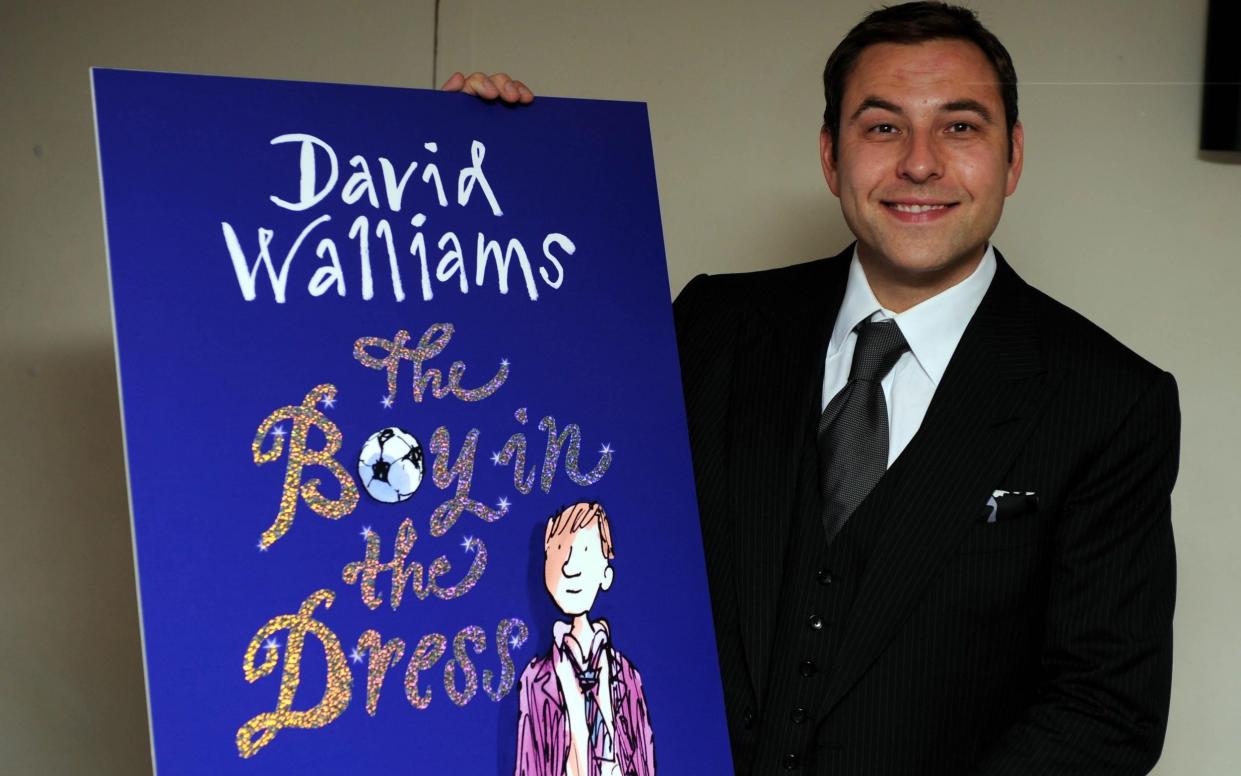David Walliams could have ‘Roald Dahl-like humour’ edited from his books

- Oops!Something went wrong.Please try again later.
David Walliams could be the next author to have his books edited to account for modern sensitivities like Roald Dahl’s stories, a children’s author has suggested.
On Friday, The Telegraph revealed that the publisher Puffin had been quietly editing and re-writing parts of Dahl’s novels since 2020, removing gendered language and changing some character’s physical descriptions.
Sensitivity readers were hired to scrutinise the text with parts rewritten for a modern audience, to ensure the books “can continue to be enjoyed by all today,” Puffin said.
Sarah McIntyre, the children’s author and illustrator, suggested that some readers would like to see books by David Walliams be rewritten.
The actor has published more than 30 books, with his latest, Robodog, due to be published by HarperCollins on March 30.
His bestsellers, which include Gangsta Granny and The Boy in the Dress, have made more than £100 million in sales.
Mr Walliams has drawn comparisons to Roald Dahl for the physical, sometimes grotesque descriptions of his characters.
His books are set in the real world and often feature an antagonistic adult, such as a neglectful parent or bank-robbing grandmother, pitted against a child protagonist.
“I think many people would like to rewrite David Walliams,” she said. “I think he gets away with Roald Dahl-like humour because he’s famous enough to refuse an editor’s objections; if they insisted, he could take his books to another publisher.
“I think one reason for his huge sales is that many kids love transgression. He can make jokes that other writers wouldn’t be allowed to make.”
‘Very artificial and dull’
In 2021, HarperCollins pulled a Walliams story about a Chinese character called Brian Wong, from his collection The World’s Worst Children, amid criticism of its “casual racism”.
The character was previously described as a boy who was “never, ever wrong”, and who was a “total and utter swot”. This has since been retracted.
Campaigners criticised a 2018 television adaptation of The Midnight Gang for its depiction of Raj, an Asian newsagent who dupes customers by trying to sell them out-of-date food.
In 2020 activist and cookbook writer Jack Monroe accused his stories of being “fat-shaming nonsense”, and drew attention to his characterisation of Miss Tutelage, a black teacher, whose “big frizzy hair” is used a punchline, while the school bully calls her “Archbishop Desmond Tutu”.
But Ms McIntyre, whose books include You Can’t Eat a Princess and The Legend of Kevin, written with Philip Reeve, said she is “very uncomfortable” with the rewriting of children’s books without the original author’s permission.
“There’s a reason that Roald Dahl has been so popular through the years; he understood that humour comes from pushing boundaries and not always being ‘nice’,” she told the Telegraph.
“And it can feel very artificial and dull, turning nuanced, imperfect characters into beacons of moral virtue.”
“Life isn’t like that, people say imperfect things. I’d much rather have people discuss the books and debate what’s going on in them – or write new books – rather than pretend the author wrote it differently.”
Dahl’s work subject to heavy revision
References to physical appearance in one of Dahl’s most popular titles, Charlie and the Chocolate Factory, have been heavily edited. In every book, the word “fat” has been removed, with Augustus Gloop now described as “enormous”.
In the same story, the Oompa-Loompas are no longer “tiny” or “titchy” but merely “small people”.
An emphasis on language that is used to describe mental health has led to the removal of “crazy” and “mad”. A mention in Esio Trot of tortoises being “backward” – the joke behind the book’s title – has also been redacted.
The changes were made by the publisher, Puffin, and the Roald Dahl Story Company, now owned by Netflix.
“It also changes our view of the past, and past literature,” Ms McIntyre added. “Why is it right for a student of Jane Austen or Charles Dickens to believe those writers, and people in those societies, thought just like us back then?
“It’s wildly inaccurate, and almost always done by people with far less skill than the writers, so an insult to their work.”
The Telegraph has contacted HarperCollins for comment.

